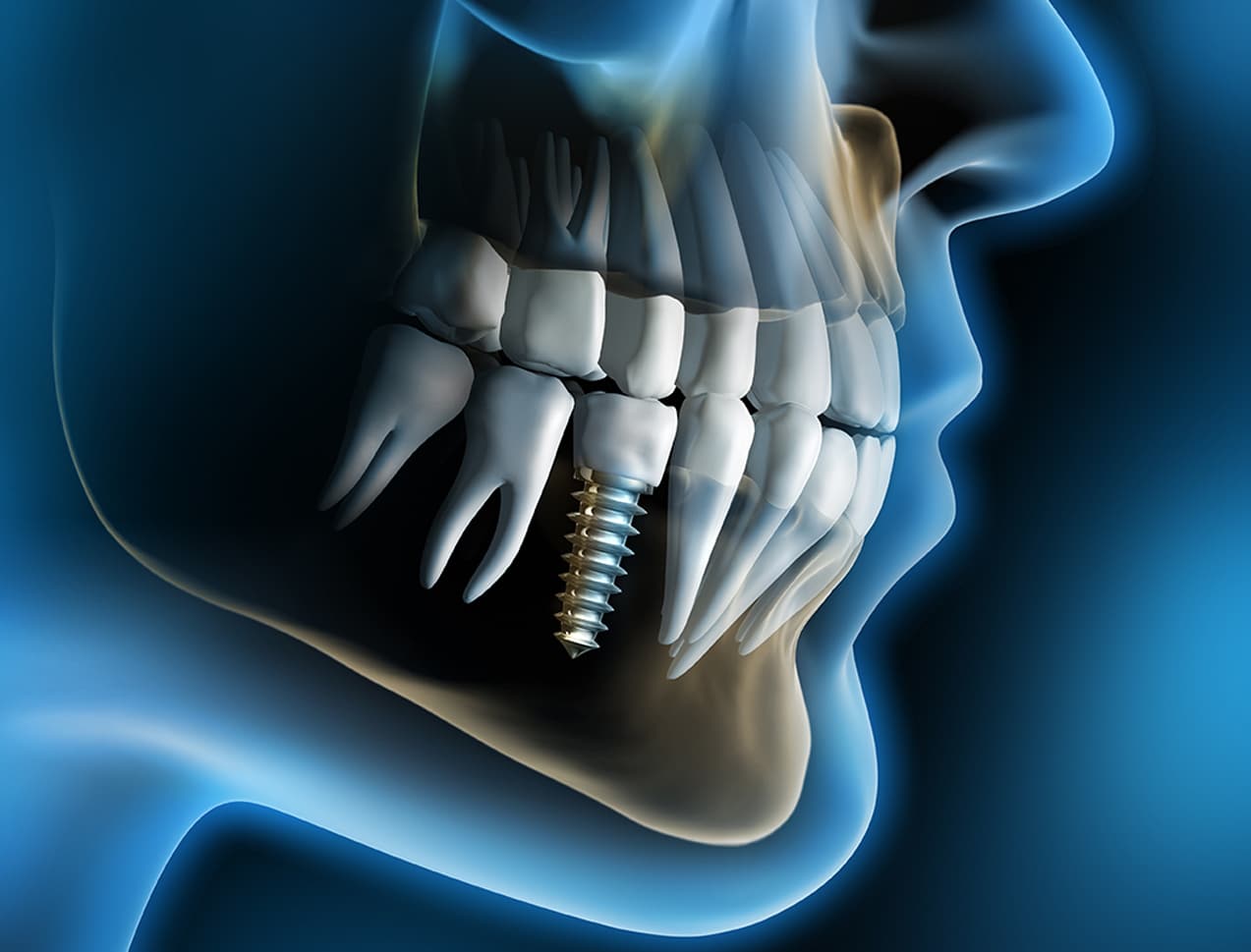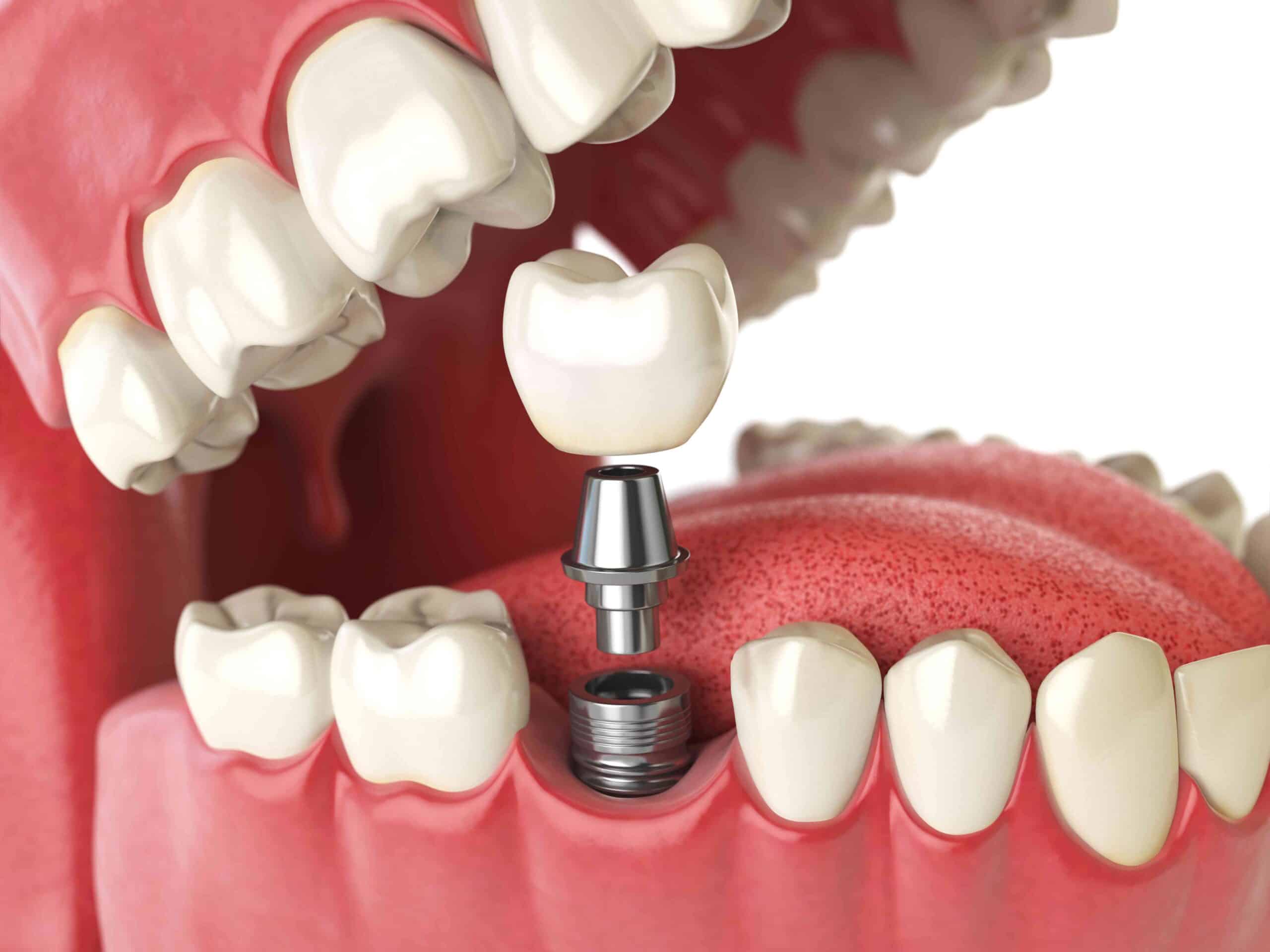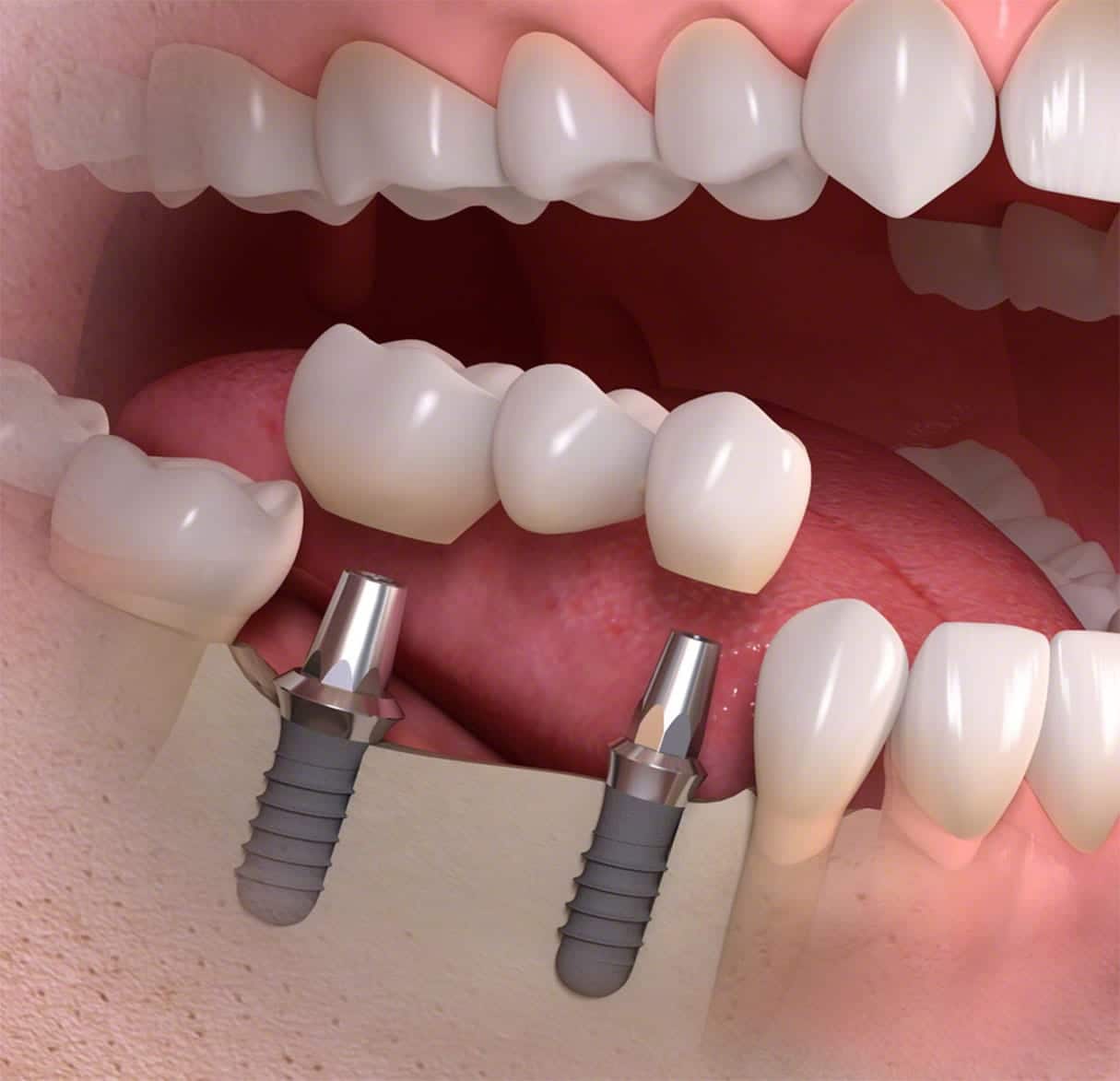


It’s easy to lose confidence in your smile if you’re worried about exposing gaps from missing teeth. The good news is dental implants provide a permanent, natural-looking replacement for teeth you have lost.
Dental implants have been around since the 50s and is a predictable and successful treatment to replace missing teeth. They help you achieve a great smile without gaps, provide structural support for the surrounding teeth, restore confidence, health and function. They are amazing gifts of dental technology to restore your ability to speak and chew effectively and bring your gorgeous smile back.
In the past, dental implants have primarily been “incision based” or commonly known as “free hand” (describing that they are placed according to the dentist’s experience and discretion). Today, most implants are being done “Guided” with the advent of technology. That is to produce a plan before the appointment, and to use this plan to accurately and safely complete the procedure. The benefits of Guided Dental Implants include but not limited to shorter recovery time, reduced post-op complications and discomfort, increased predictability, reduced bone resorption following surgery.
Cosmoz Dental Care offers dental implants using Sydney’s finest technicians with the highest-quality materials to develop and create dental implants which look and feel stunning for years to come.
What is a Dental Implant?
A dental implant is a 8-16mm long-screw or cylinder most commonly made from surgical grade titanium which is most bio-compatible material. It acts as artificial tooth roots that are surgically placed into the jawbone. It is used to hold a replacement tooth which is precision-molded to perfectly replace your missing natural tooth. The implant sits completely below the gum line so your new tooth will look natural.
A special attachment, called the abutment, is fitted to the top of the implant. This is what holds your new replacement tooth (crown) or teeth (bridge or denture) firmly in place.
The implant stands on its own and unlike a dental bridge implants does not affect the teeth around. It has great stability and does not get decay or get damaged easily like a tooth. These superior properties of implants let you continue doing and eating what you love without worrying about the effect on your smile.
A variety of factors can contribute to whether dental implants are right for you. For your implant to be successful and function as it should, you will need to have healthy gums, adequate bone to support the implant and have no underlying health conditions which could affect the way your implant functions. To find out if you’re a candidate for dental implants, contact our clinic to book a consultation.
How are the dental Implants Affixed?
Getting a perfect implant requires multiple visits to your dentist over several months to make sure your tooth will be restored as best as it can be.
First, you will need to have X-rays and impressions of your jaw and teeth taken to determine how much bone structure, gum tissue, and space you have available for the implant. If your dentist determines that you are suitable for an implant, then your dentist will make treatment plan to decide the locations, positions, sizes, lengths and number of implants required for your treatment as well as the prosthetic part of your replacement and you will then move on to the implant process.
The implant itself will be placed in your mouth under local anesthesia which will completely numb the area to ensure you are pain-free throughout the procedure.
A small incision or a punch hole will then be made in your gum before your dentist drills a small hole into your jaw to place the implant.
Following the insertion of implant, a healing abutment over the implant will be placed to allow your bone and gum heal completely. In some cases where the jaw bone has diminished due to long-term missing teeth, dental wear, periodontal disease, bone resorptions, ageing or injury, it may be necessary to undergo a bone-grafting technique prior to or during the implant surgery. Your dentist will advise you if this may be required after examining your initial x-rays.
Then implant needs about 3-6 months to allow the bone to grow around and bond to it. Your new artificial tooth can be molded and prepared in this time. Once the implant is securely bonded to the bone (this process called as osteointegration), your new artificial tooth (a dental crown or bridge) can be attached to the implant in another visit to your dentist following the impressions required for your crown design. Your new teeth will be matched to blend the shape and color of your existing teeth for seamless integration. They will function just like your natural teeth, allowing you to chew, speak and smile with confidence.
If you are going to have implant supported denture, then your abutments will be special type to enable proper insertion and exertion of dentures which will be followed by building a special denture to meet the maximum aesthetic, function and support for your mouth. Where dental implants are used to affix dentures, there is no need for special glues to hold them in place. The implant provides a firm grip that will never slip, rub, or affect your ability to speak or eat properly.





